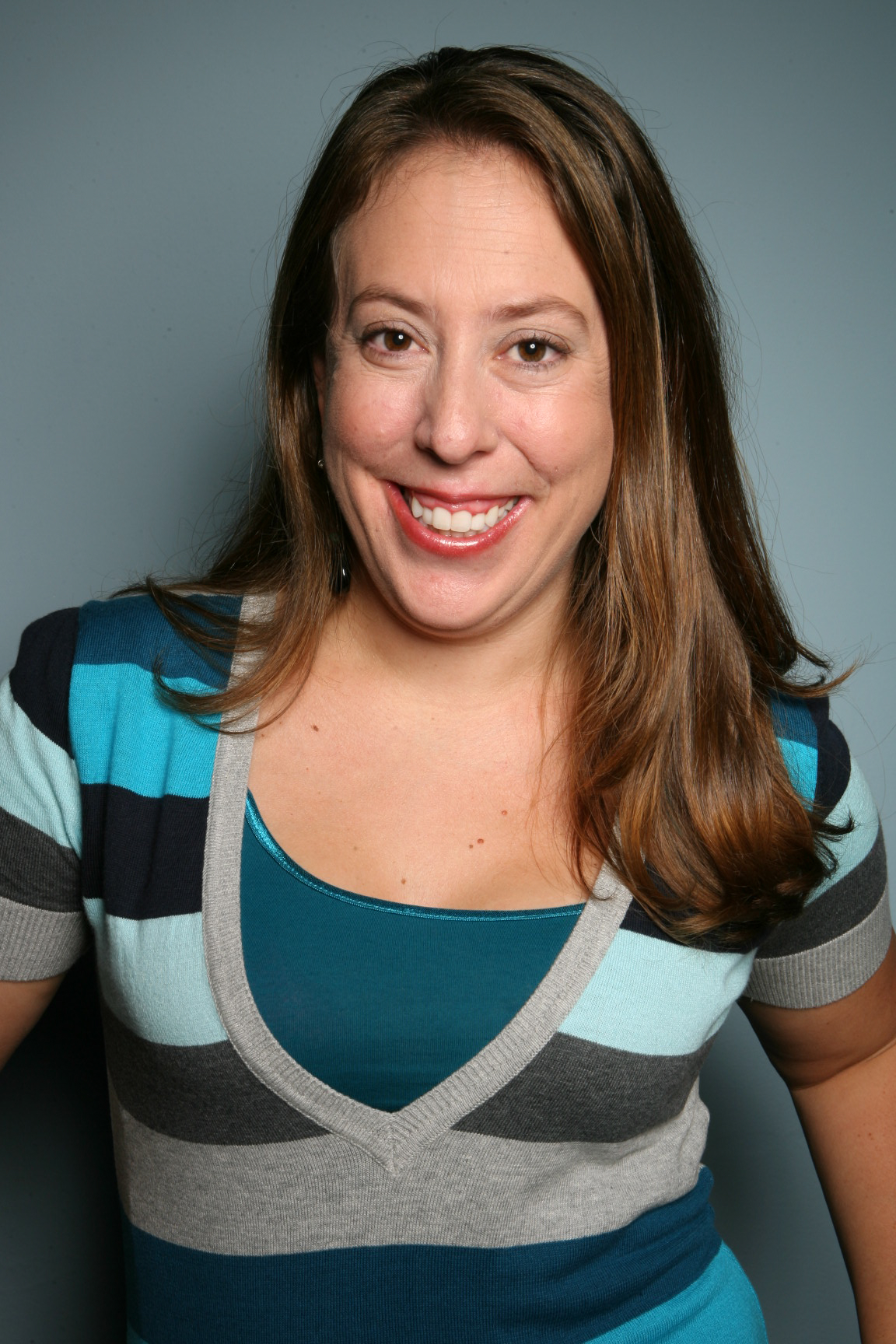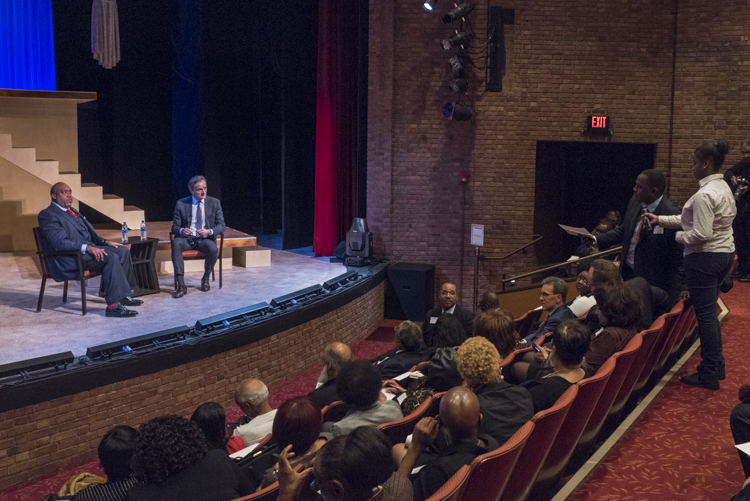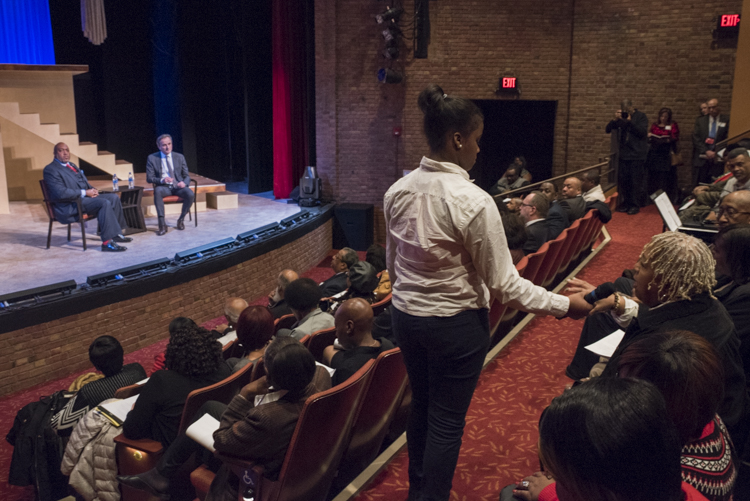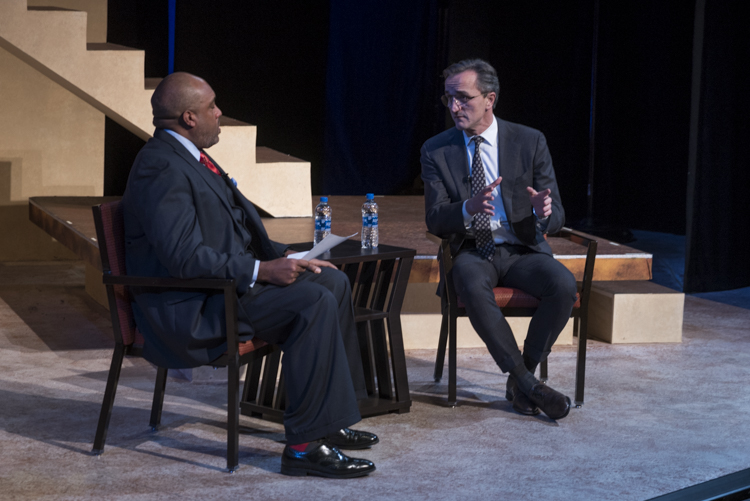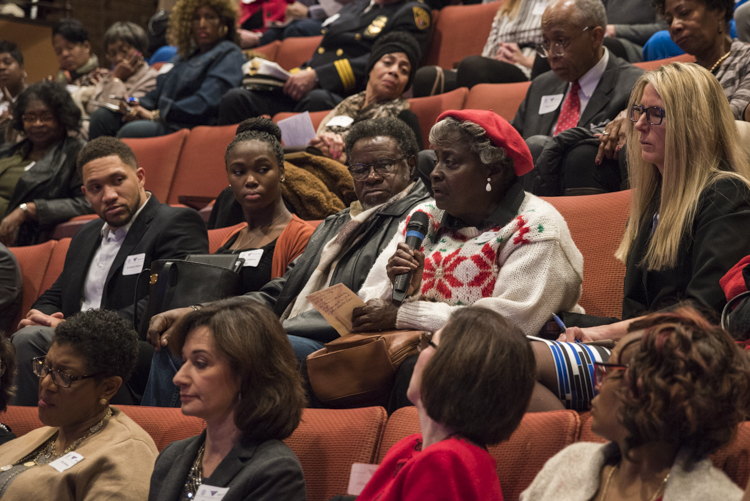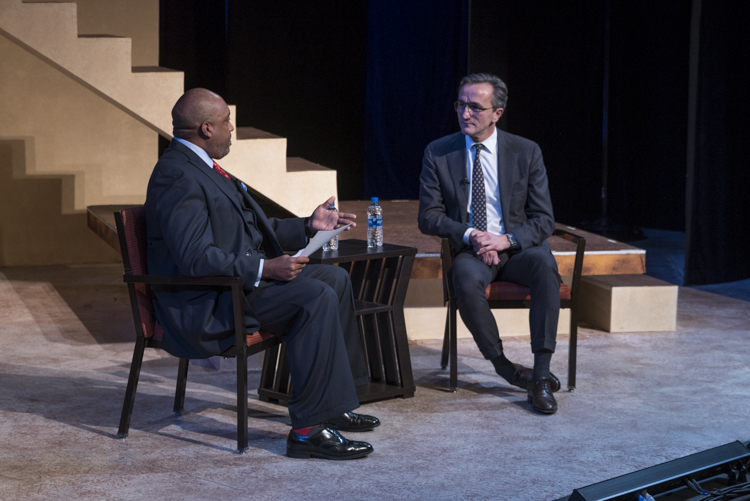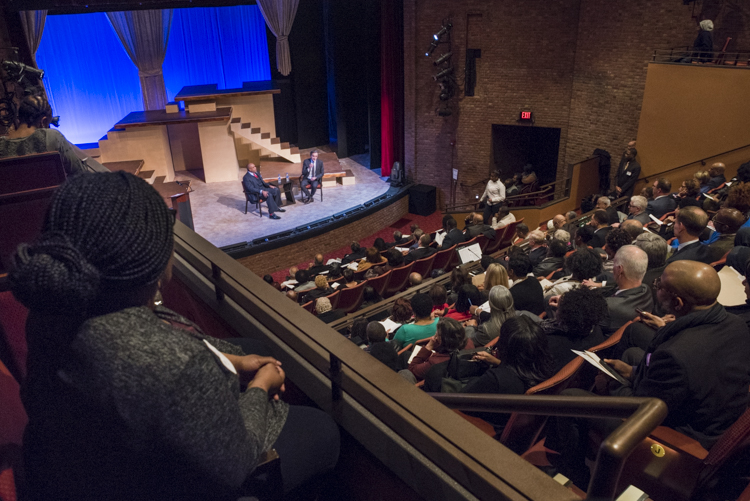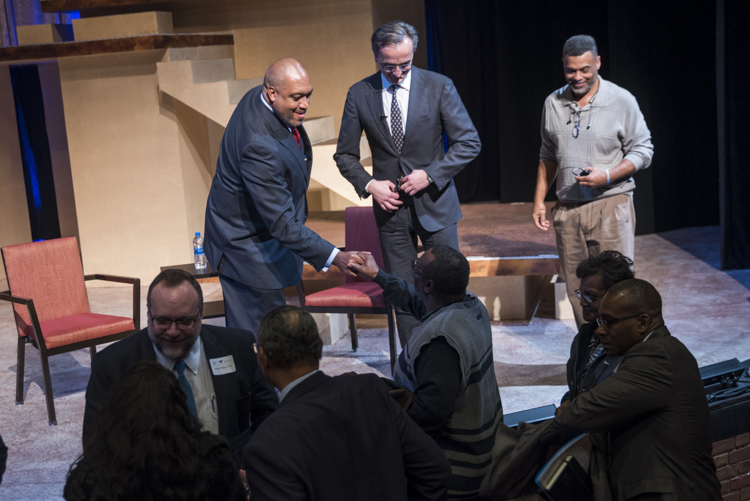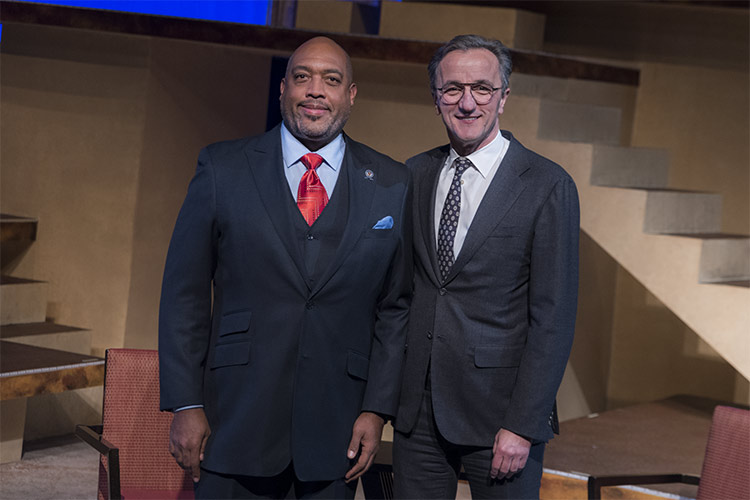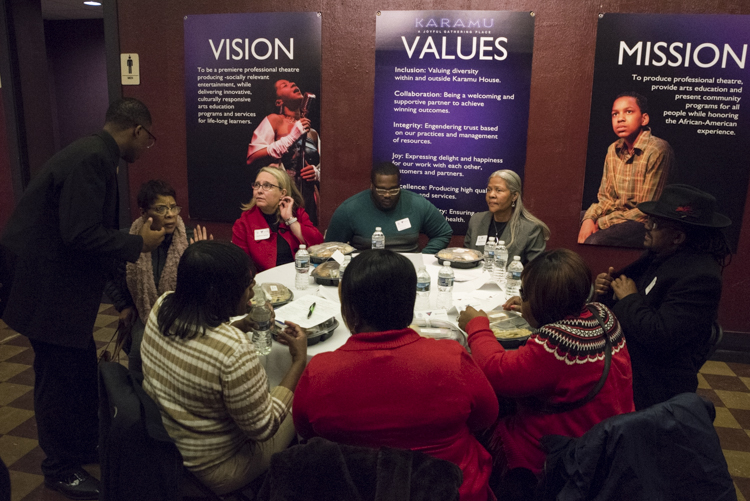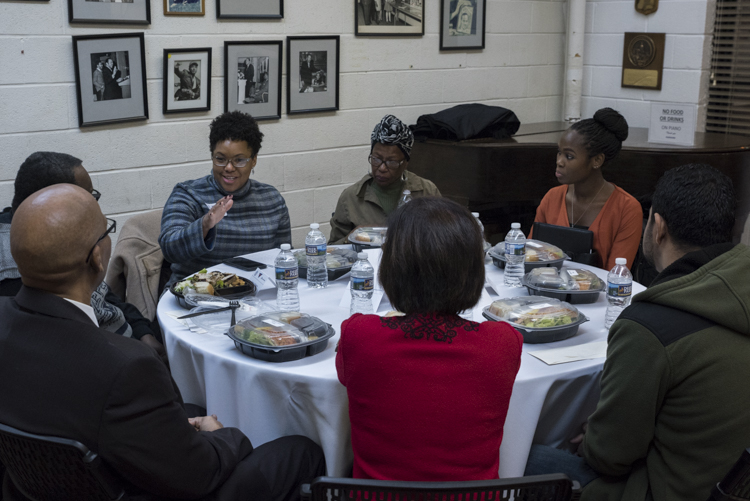How Cleveland Clinic and Fairfax are reinventing their relationship for a brighter future
Autumn walks are almost always invigorating, but a walk taken this past fall has the potential to invigorate an entire community.
In October, Ward 6 councilman Blaine Griffin and Fairfax Renaissance Development Corporation executive director Denise Van Leer took a long walk around the Fairfax neighborhood with the Cleveland Clinic’s Senior Director of Community Relations Vickie Johnson and CEO Tomislav Mihaljevic.
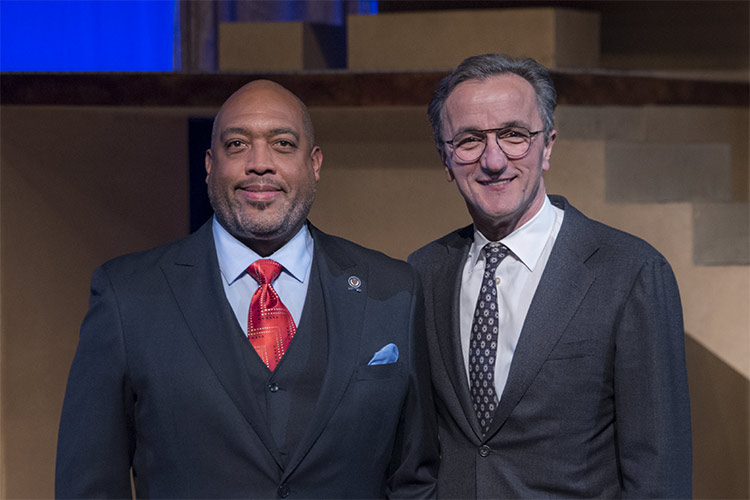 On the walk, they covered the future site of the Innovation Square project—a mixed-income, walkable urban residential community currently under development. It also gave Mihaljevic—who took the reins at the Clinic earlier this year—a chance to better understand the neighborhood and meet its residents face-to-face.
On the walk, they covered the future site of the Innovation Square project—a mixed-income, walkable urban residential community currently under development. It also gave Mihaljevic—who took the reins at the Clinic earlier this year—a chance to better understand the neighborhood and meet its residents face-to-face.
“People were shocked to see him walking around the neighborhood,” says Van Leer. “That was huge, for the CEO of the Clinic just to walk up and down the streets and say hi to people.”
The walk paved the way for “A Community Conversation,” held Tuesday, December 18, at Karamu House as a way for Fairfax residents to interface further with Mihaljevic and address concerns and ideas for better integrating the Clinic and its surroundings. Along with a Q&A featuring Mihaljevic and Griffin, 18 Cleveland Clinic executives led breakout sessions on topics ranging from parking to neighborhood safety to gentrification.
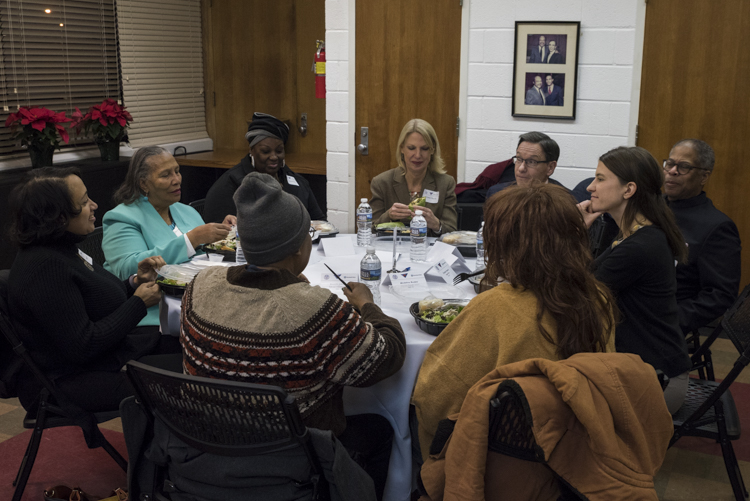 The interaction was significant in that many Fairfax residents have felt threatened and displaced by the Clinic’s expansion of its main campus, which now spans 41 buildings and 60 acres. (One resident present at the Community Conversation likened the Clinic to “Pac-Man, eating up everything in sight.”)
The interaction was significant in that many Fairfax residents have felt threatened and displaced by the Clinic’s expansion of its main campus, which now spans 41 buildings and 60 acres. (One resident present at the Community Conversation likened the Clinic to “Pac-Man, eating up everything in sight.”)
According to Van Leer, the event was monumental in that it was the first time the Cleveland Clinic has interacted with the neighborhood in this type of open forum—and Mihaljevic says it’s just the beginning.
“We know that trust is earned in drops, but lost in buckets,” Mihaljevic told the crowd of over 100 people. “We hope to start [placing] drops in the bucket of trust we want to create.”
At the event, Mihaljevic outlined several concrete steps the Clinic is taking to do just that. In early 2020, the Clinic will raise its minimum wage to $15/hour—becoming the first in the state of Ohio and one of the first in the country to do so. He also referenced the Clinic’s Louis Stokes Internship Program and its recent agreement with Evergreen Cooperatives, which took over the Clinic’s Collinwood-based laundry facility in May. The former provides opportunities for high school students from Cleveland and East Cleveland to explore non-clinical careers in healthcare, while the latter helped add 100 jobs for local residents.
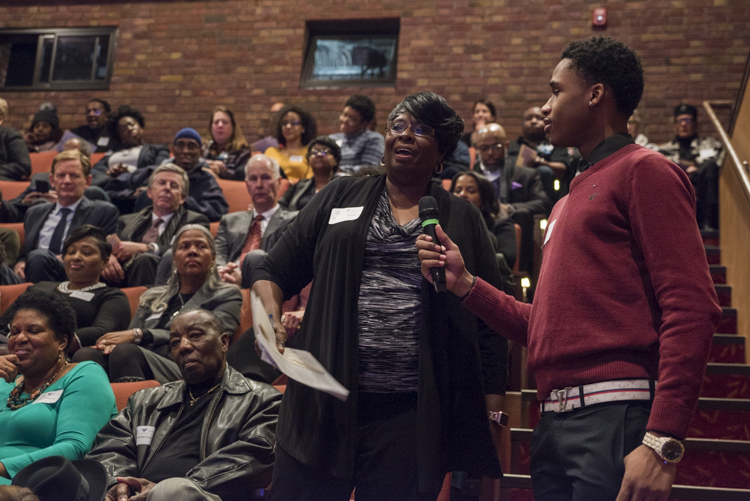 When one attendee referenced the recent Center for Community Solutions report highlighting racial disparities in Cleveland, Mihaljevic pointed to the Clinic’s three current objectives meant to positively affect the community: providing high-quality healthcare, creating jobs, and offering education to offset critical issues like rising infant mortality rates and the opioid crisis—both of which affect the Fairfax community. (The infant mortality rate in Fairfax is 16 in every 1,000 live births, and the rate of opioid overdose deaths in Ohio is up 32.8 percent from 2015—with a third of those deaths in Northeast Ohio.)
When one attendee referenced the recent Center for Community Solutions report highlighting racial disparities in Cleveland, Mihaljevic pointed to the Clinic’s three current objectives meant to positively affect the community: providing high-quality healthcare, creating jobs, and offering education to offset critical issues like rising infant mortality rates and the opioid crisis—both of which affect the Fairfax community. (The infant mortality rate in Fairfax is 16 in every 1,000 live births, and the rate of opioid overdose deaths in Ohio is up 32.8 percent from 2015—with a third of those deaths in Northeast Ohio.)
“We’ve lost more people in one year to opioids than during the entire Vietnam War,” Mihaljevic shared.
Another attendee raised concerns about the Clinic’s August 2017 purchase of the land at Cedar Avenue and East 103rd Street for a biorepository site, necessitating the relocation of Calvary Hill Baptist Church to Cleveland Heights after 60-plus years in Fairfax. (According to this Cleveland.com article, the church was the fourth to leave the area in the last two years.) “Churches are the history and lifeblood of this community,” the resident stated. “We don’t want more local institutions to get caught in the crosshairs.”
Mihaljevic was receptive and said he was open to discussions regarding future expansion and how it could impact Fairfax’s long-time institutions. “We are all one,” said Mihaljevic. “We are not here against each other; we have to work together. We are here to stay, and here to serve.”
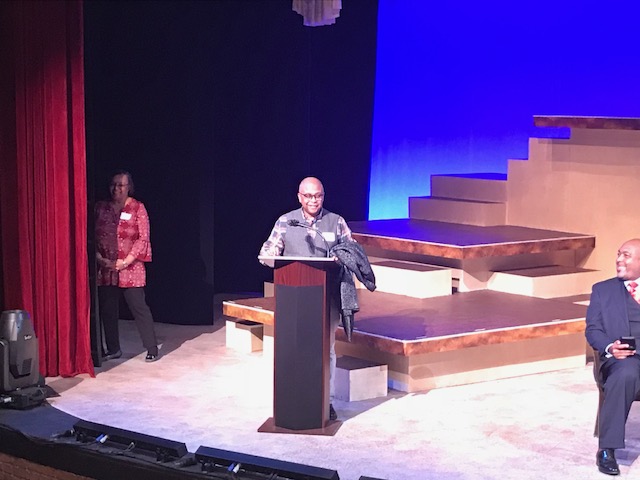 As local architect August Fluker sees it, realizing that vision will require a shift to a culture of co-creation and ongoing communication between the community and the Clinic.
As local architect August Fluker sees it, realizing that vision will require a shift to a culture of co-creation and ongoing communication between the community and the Clinic.
“Historically, the Clinic has done what they wanted to do; they haven’t been transparent,” says Fluker. ‘They’ve continued to purchase property and leverage development without being totally upfront about their intent. It’s time to realize this isn’t a real estate transaction—it’s a transaction with a lot of social implications. As long as they start using that lens, they can become part of the solution.”
Fluker has a unique vantage point on the situation as one of three principal owners of City Architecture, the firm leading the aforementioned Innovation Square project (which will cover the area between E. 99th and E. 105th Streets from Cedar Avenue down to Quincy Avenue). Along with approximately 500 mixed-income units (both apartments and townhomes), the project will also add new greenspace, new streets, and improvement opportunities for existing area homes.
“[The idea is to] reach back into the community by adding new housing in vacant lots and providing access to capital for those who want to renovate their homes so that they can be part of the renaissance, too,” says Fluker.
Fluker thinks that type of inclusion can also be transformative for the Clinic in keeping with the overall vision. Though he acknowledges that hospitals are “insular by nature,” Fluker thinks it could make a big difference to have hospital businesses be outward-facing to integrate more with the community.
“You wouldn’t believe the amount of restaurants and vendors they have inside their walls,” says Fluker. “Imagine getting people out of those four walls, creating opportunities for indigenous businesses and capitalizing on bringing folks out of the hospital. It would create a softer edge along Cedar and reinvigorate the streets with lots of shops and businesses. Wouldn’t that be wonderful?”
Though such changes take time, Fluker is okay with that and actually believes incremental change can be more impactful in creating a more cohesive community. Says Fluker, “I’ll leave you with an African proverb: ‘If you want to go fast, go alone. If you want to go far, go together.”
FreshWater is excited to explore these themes and more in an upcoming On the Ground program in 2019! Our publication will dedicate 12 weeks of community coverage this spring, similar to the initiative we undertook this year in Old Brooklyn. We can't wait to share the stories of Fairfax and highlight this Cleveland community.
